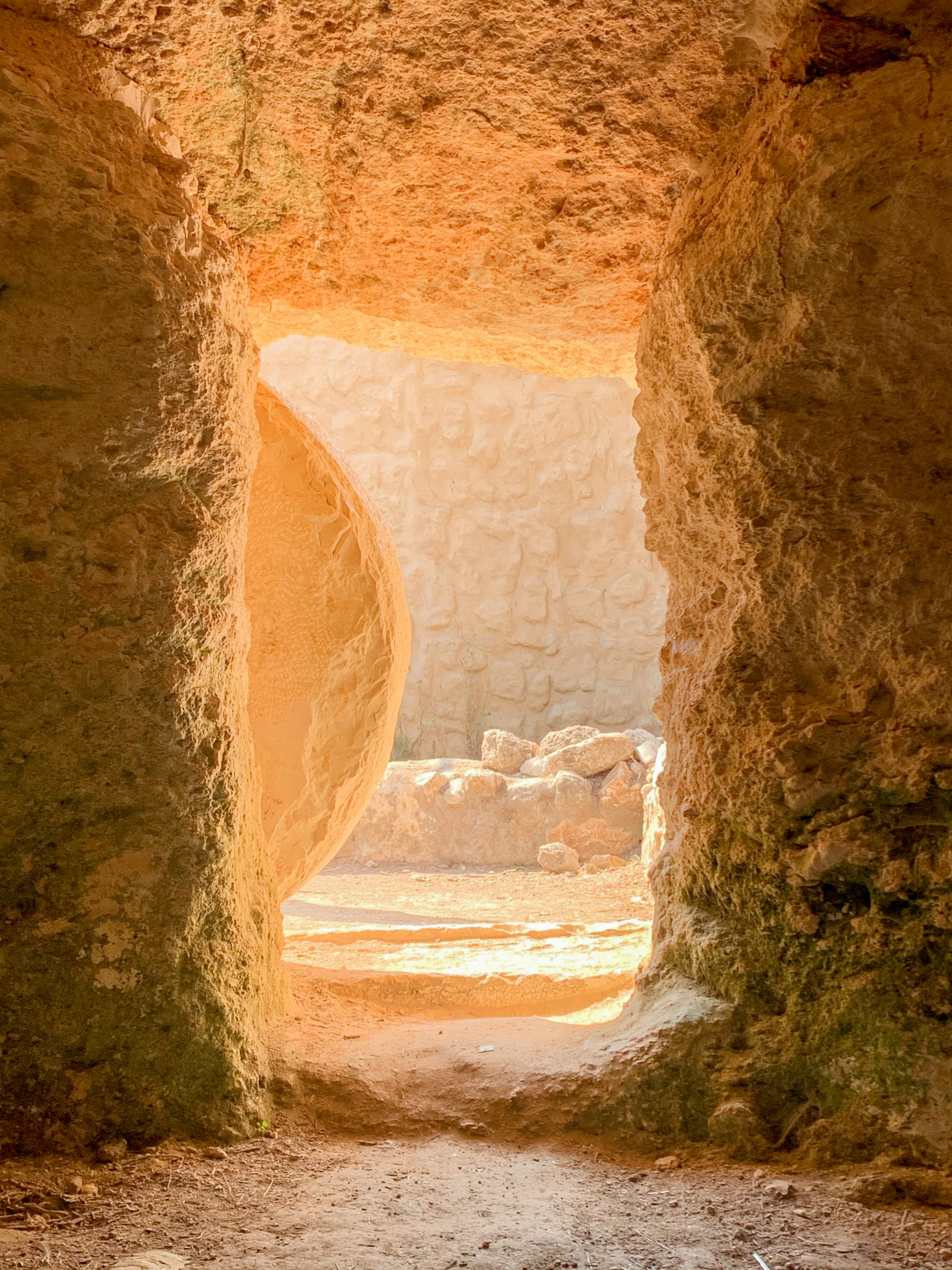It is the Easter season, so here is a seasonal message. A quick scan of any newspaper or media outlet will reveal that the world is a society of enemies. If you are a member of a particular political party, religion, financial stratum, ethnic group, or news team, or drive a certain car, or wear certain caps or t-shirts, or anything else imaginable, you have enemies. Polarization divides us from pole to pole, manifesting itself in verbal and physical attacks. Some of us become victims, and some of us escape with just a few verbal sticks and stones. Threats are all around us.
We may feel secure because we have a Ring doorbell or security cameras or concealed carry permits, and take precautions to assure our safety from real, potential, or imagined enemies. What does this have to do with Easter, the time of bunnies, chicks, sugar, and plastic grass?
When we examine the true meaning of Easter, we can make the connection. Hallmark fluff aside, the Easter season celebrates the death, burial, and resurrection of Jesus Christ, the Son of God. Death and burial are common to all men, but the resurrection of Jesus is uniquely unique. How does a 2,000-year-old miracle affect us?
Whether people feel threatened or not, and believe they are part of the “correct” group, the truth is that every person has two enemies, two reasons why the resurrection of Christ is relevant to every life.
The two inescapable and often overlooked or underappreciated enemies are: God and death.
Calling God an enemy sounds harsh and even blasphemous—but it’s true. The psalmist spells it in simple terms: “God is a just judge, And God is angry with the wicked every day.” (7:11). Isaiah reminds us that “your iniquities have separated between you and your God, and your sins have hid his face from you, that he will not hear” (59:2). Somehow, the sins that separate us from God have to be removed. Jesus did this on Good Friday, “having made peace through the blood of his cross, by him to reconcile all things unto himself; by him, I say, whether they be things in earth, or things in heaven” (Colossians 1:20). The necessity of the resurrection is that, “For if while we were enemies we were reconciled to God by the death of his Son, much more, now that we are reconciled, shall we be saved by his life” (Romans 5:10). Had Jesus not risen from the dead, there would be no one to save us.
There is yet another enemy that all of us face: death. Since the dawn of creation, mankind has sought ways to cheat death. So far, the failure rate is 100%. When someone commits suicide, we say they have taken their own life. Only one person has ever given his life and taken it back. “For this reason the Father loves me, because I lay down my life that I may take it up again” (John 10:17). The Son of Man reconciled believers to God by his death and cheated death by his resurrection. “Since therefore the children share in flesh and blood, he himself likewise partook of the same things, that through death he might destroy the one who has the power of death, that is, the devil” (Hebrews 12:14).
Without Jesus, “who was delivered up for our trespasses and raised for our justification” (Romans 4:25), we could have no guarantee of peace with God, and the fear of death would continue to haunt every man and woman.
Jesus’s question to his grieving friends in John 11:25–26 carries the same force for you and me today: “I am the resurrection and the life. Whoever believes in me, though he die, yet shall he live, and everyone who lives and believes in me shall never die. Do you believe this?”
Originally published in the Allentown Morning Call, April 19, 2025.






